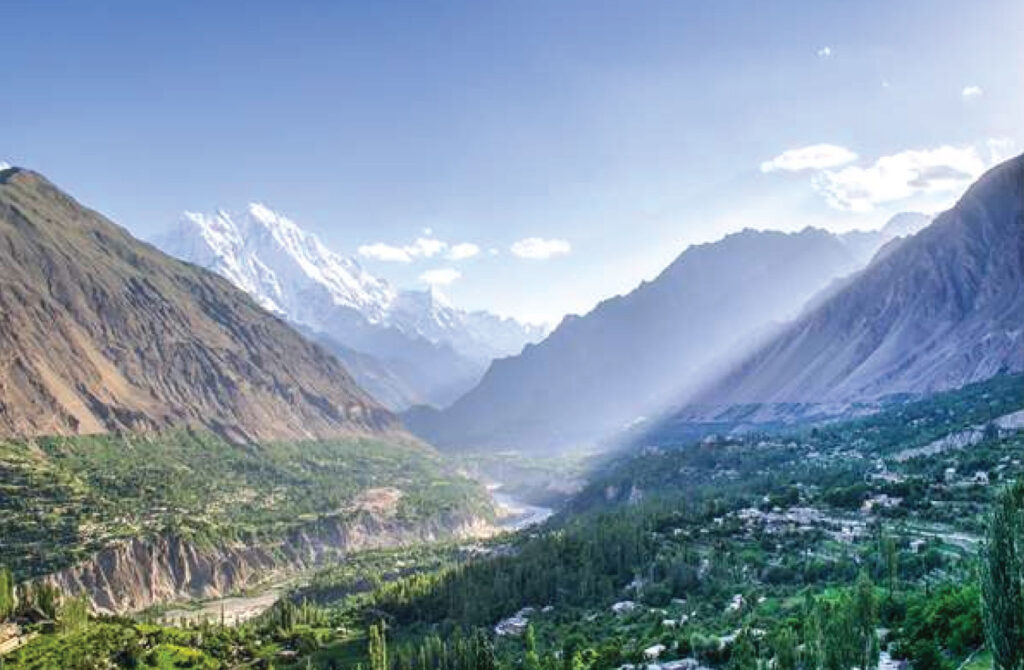The World Bank has reported that Pakistan generated $16 billion in visitor spending in 2022, with a projected increase to $30 billion by 2033. The bank’s website also noted that the travel and tourism sector contributed 5.9% to Pakistan’s GDP in 2022 and supported 4.2 million jobs, though there is room for growth given the country’s diverse tourist attractions.
Pakistan experienced a significant surge in domestic tourism immediately after COVID-related travel restrictions were lifted. In 2021 and 2022, over 1.2 million domestic and international tourists visited Khyber Pakhtunkhwa province alone.
To manage the growing influx of visitors throughout the year and tap into the tourism sector’s untapped economic potential, local authorities, communities, and the private sector need resources, equipment, and training. This should be done while promoting environmentally friendly and inclusive tourism.
The “Travel Responsibly for Experiencing Eco-tourism in Khyber Pakhtunkhwa (TREK)” initiative, a partnership between the Government of Khyber Pakhtunkhwa, the World Bank, and Nestlé Pakistan, aims to encourage and support responsible tourism. This initiative complements the ongoing efforts of the Khyber-Pakhtunkhwa Integrated Tourism Development Project (KITE) for heritage preservation and tourism infrastructure development.
Since 2020, TREK has conducted awareness campaigns for tourists and provided training to local communities and hospitality businesses on effective waste management. More than 650 participants from over 150 hotels and restaurants in Khyber-Pakhtunkhwa’s tourist areas have received training.
This program has also benefited local communities, local authorities, and academia in Peshawar, Nathiagali, Abbottabad, Swat, Naran, and Chitral districts.
The training focused on minimizing solid waste, segregation, management, and recycling techniques.
Public service messages promoting responsible tourism were launched through social media and radio campaigns in Khyber Pakhtunkhwa, Islamabad, and Lahore, as these areas attract the majority of domestic tourists. These messages emphasized the importance of keeping tourist sites free from litter.
To further discourage littering, 10,000 reusable bags were distributed to tourists and the hotel association in popular tourist destinations. Simultaneously, the IDA-financed KITE project supplied waste bins, garbage collection equipment, and compacting machinery to local authorities in Nathiagali, Naran, Chitral, and Kumrat districts of Khyber Pakhtunkhwa, as well as some locations in the Punjab province.
Additionally, 50 tourist information signboards were installed to complement the awareness campaigns.
